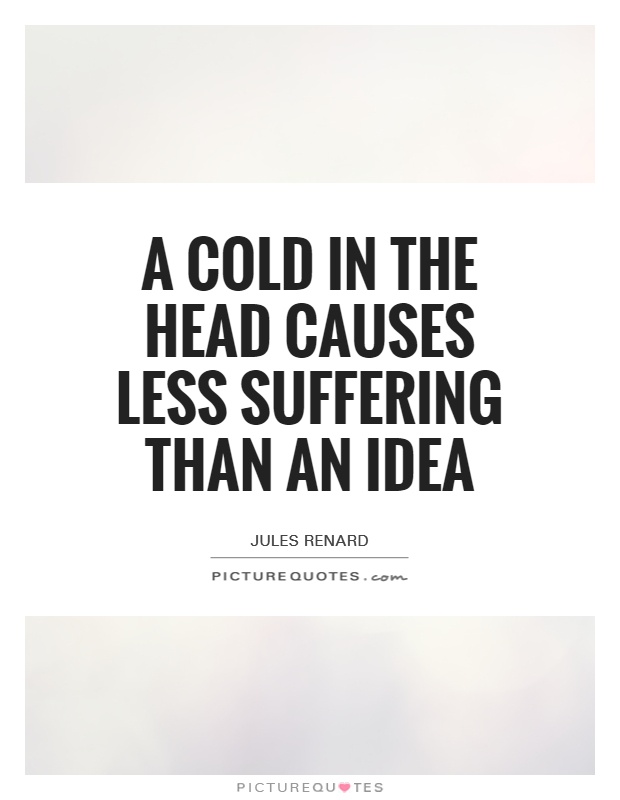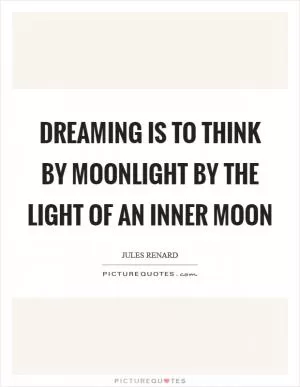
A cold in the head causes less suffering than an idea

A cold in the head causes less suffering than an idea
Jules Renard, a French author known for his witty and insightful observations on life, once famously said, "A cold in the head causes less suffering than an idea." This seemingly simple statement holds a profound truth that resonates with many individuals who have experienced the torment of a persistent idea or thought.When we think of a cold in the head, we often associate it with physical discomfort such as congestion, sneezing, and a general feeling of malaise. While these symptoms can be unpleasant, they are usually temporary and can be alleviated with rest, fluids, and over-the-counter medications. In comparison, an idea or thought that consumes our minds can be much more insidious and enduring.
An idea has the power to infiltrate every aspect of our lives, affecting our emotions, behaviors, and relationships. It can keep us awake at night, distract us during the day, and cause us to second-guess ourselves at every turn. Unlike a cold in the head, which eventually runs its course, an idea can linger for weeks, months, or even years, causing untold suffering and distress.
Jules Renard's statement speaks to the idea that mental anguish can be far more debilitating than physical illness. While a cold in the head may cause discomfort and inconvenience, it is ultimately a temporary condition that will pass with time. On the other hand, an idea has the potential to consume us completely, leading to anxiety, depression, and a sense of helplessness.
In the context of Jules Renard's work, this quote can be interpreted as a reflection of the author's own struggles with creativity, self-doubt, and the relentless pursuit of perfection. Renard was known for his introspective and often melancholic writing, which delved into the complexities of human nature and the fleeting nature of happiness. It is likely that he understood all too well the torment of an idea that refuses to be silenced, and the toll it can take on one's mental and emotional well-being.












 Friendship Quotes
Friendship Quotes Love Quotes
Love Quotes Life Quotes
Life Quotes Funny Quotes
Funny Quotes Motivational Quotes
Motivational Quotes Inspirational Quotes
Inspirational Quotes